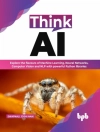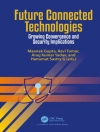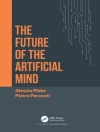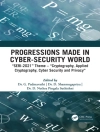The chapters in this book present the work of researchers, scientists, engineers, and teachers engaged with developing unified foundations, principles, and technologies for cyber-physical security. They adopt a multidisciplinary approach to solving related problems in next-generation systems, representing views from academia, government bodies, and industrial partners, and their contributions discuss current work on modeling, analyzing, and understanding cyber-physical systems.
قائمة المحتويات
Robust Digital Computation in the Physical World.- Constraint-Based Framework for Reasoning with Differential Equations.- Approximate Computing and Its Application to Hardware Security.- Mathematical Optimizations for Deep Learning.- A Zero-Entry Cyber Range Environment for Future Learning Ecosystems.- Parallel Programming in Cyber-Physical Systems.- Automatic Application of Software Countermeasures Against Physical Attacks.- Time-Delay Attacks in Network Systems.- Attack Tree Construction and Its Application to the Connected Vehicle.- Reinforcement Learning and Trustworthy Autonomy.- Identifier Randomization: An Efficient Protection Against CAN-Bus Attacks.- Public-Key-Based Lightweight Swarm Authentication.- Physical Security Versus Masking Schemes.- Embedded Classifiers for Energy Constrained Io T Network Security.- Challenges in Cyber Security: Ransomware Phenomenon.- Applying Model-Based Situational Awareness and Augmented Reality to Next-Generation Physical Security Systems.












